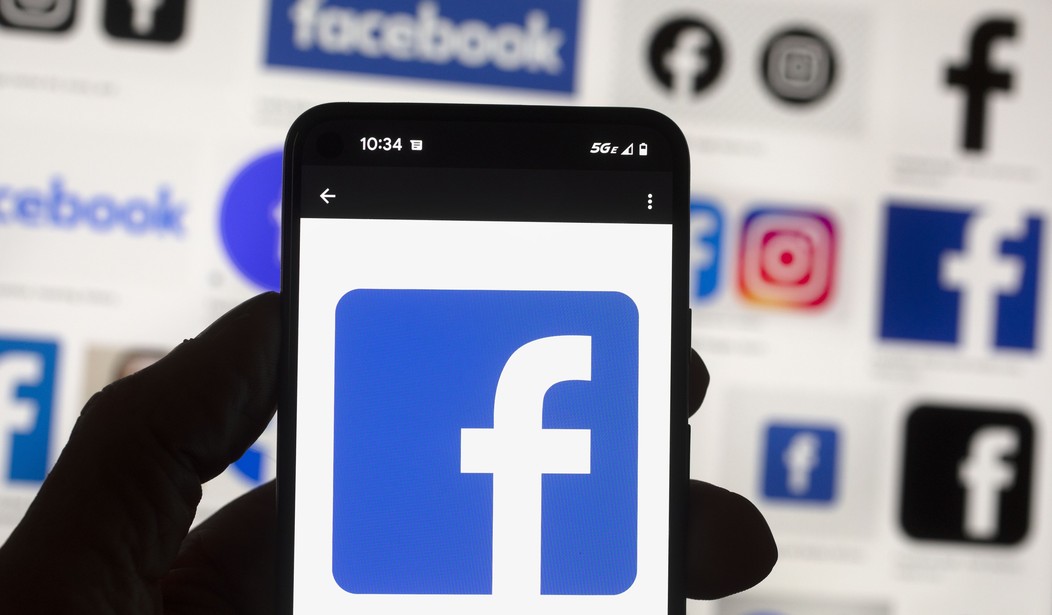Ever wondered what Mark Zuckerberg got for all that money he gave Democrats to meddle in the 2020 election?
One thing he’s gotten, of course, is a lot of grief. No longer was Facebook just a place to have fun, meet with friends, organize family barbecues and make videos of yourself dumping water on someone’s head.
Facebook was now a political player, subject to all the slings and arrows that goes with that. It gleefully censored the content of those who didn’t buy into “the narrative,” often at the behest of government insiders who didn’t want Donald Trump to win. And his donations to Democrat electoral efforts not only raised questions about election integrity in a number of locations but did undeniably help stem the expected red wave.
FWD, the lobbying outfit he attempted to launch years ago, has not succeeded. Facebook has bumbled through two national elections since its founding and has gone back and forth on accepting ads, running videos and other initiatives.
After changing the name to Meta, Zuckerberg set up American Edge, an astroturf support group to “combat US lawmakers and regulators trying to rein in the tech industry.” Its main thrust was to be to fight antitrust legislation in Congress, especially that which pertains to Big Tech.
It says, in ominous tones, according to The Washington Post, that new antitrust laws would weaken the tech sector, hurt minority-owned businesses and dismantle companies that could provide a line of defense against cyberattacks from Russia or elsewhere.
Siding with leftists hasn’t even enabled Facebook to escape wrath from leftists. The ACLU charged a few years ago that Facebook’s censorship had a distinctly racist overtone. “When activists of color and white people posted the exact same content, Facebook moderators censored only the activists of color,” the ACLU wrote. “When black women posted screenshots and descriptions of racist abuse, Facebook moderators suspended their accounts or deleted their posts. And when people used Facebook as a tool to document their experiences of police violence, Facebook chose to shut down their livestreams.”
Recommended
Zuckerberg hasn’t spent all this money and taken all this abuse for nothing. He wants to be able to call in a favor. He’s not for antitrust legislation that would challenge his ownership position, but he is interested in eliminating competitors.
He’s trying to get Congress to shut down TikTok. Some state and local governments have banned its use on government-owned devices, and that’s not necessarily inappropriate. Most of what one finds on TikTok comes under the general category of pleasure, as opposed to business, and fears that the Chinese Communist Party can spy through the application are real for governments owning databases with sensitive information about employees and clients.
But to average Americans who watch it to keep up with the latest stunts, cooking fads and other content it’s just an app, one they should be free to use.
Facebook trots out the argument that the content on TikTok is “dangerous to children.” So is some of the content on Facebook, although fewer children see it because they gravitate to more fun and youth-centered apps such as TikTok. Whatever engagement kids have with the internet should be supervised by parents. Banning one app for another is not the solution.
And let’s be real. What Facebook seeks here is not the safety of American internet users. It has happily forked that over before in a crunch. What Facebook seeks is to eliminate a competitor – one that is earning more through ad and product purchases than Facebook. One, in fact, that has $200 million more in revenue this year than Facebook, Instagram, Snapchat and Twitter combined. The company that invented the “like” button simply isn’t that liked anymore.
If you don’t like TikTok, if you don’t like the idea of a Chinese company emerging as the leader in the social media market, build a better competitor. Campaign against it. Try to sell others on the risks involved.
But it’s not the American way to allow one competitor to use the government power he tried to buy by helping one party corrupt the previous election to shut down a competitor. We can do better.

























Join the conversation as a VIP Member